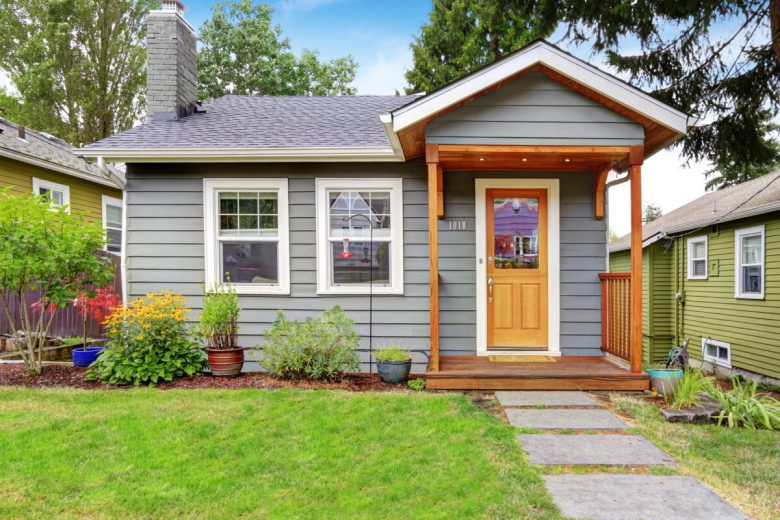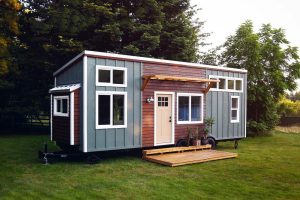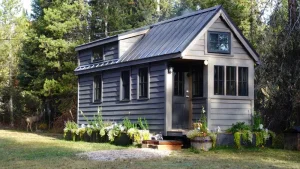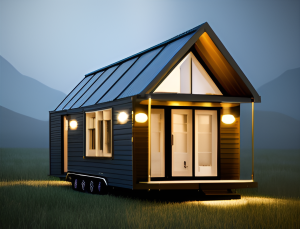Tiny houses have become increasingly popular in recent years as people want to live easier and greener lives. Tiny houses are cute alternatives to traditional houses because they are small and cozy. However, before moving into a tiny house, it’s important to understand the legal requirements that come with it. Knowing the laws, from zoning to building codes, can help you realize your tiny house dreams without any legal hassle.
Zoning Rules:
One of the most important parts of living in a tiny house is knowing the zoning plans where you want to live. According to the zoning plan, the land can be used for residential, commercial or industrial purposes. Some places have embraced the tiny house movement and set aside areas for these homes. Other places may have strict regulations that make it difficult to live in a tiny house.
Before you start building or buying a tiny house, you need to know the zoning regulations of the area you want to live in. Look for cities with flexible zoning laws that allow for both tiny homes on wheels and homes on foundations. At these locations, tiny houses often have to meet certain minimum lot sizes, setbacks and connection rules for utilities.
Construction Rules:
Building codes are another important point to consider when living in a tiny house. There are building regulations to ensure homes are safe and well built. But these codes can be difficult to understand because they are different in every field.
When building a tiny house, you must follow local building codes, which may include rules for plumbing, electrical systems, insulation, and more. Some places consider tiny houses on wheels as recreational vehicles (RVs), which means they must follow different rules than stationary buildings. On the other hand, tiny houses built on foundations may have to follow the same building regulations as regular homes.
Evolving Laws and Regulations:
Getting the proper permits and approvals is a very important part of building a tiny house. These approvals depend on the type of tiny home and its purpose. For example, if you want to park your tiny house on someone else’s land, you may need a temporary residence permit.
If you are going to build a tiny house from scratch, you may need a building permit. This means that you must submit building plans, undergo inspections and meet other requirements. It’s important to work closely with local officials for your tiny house project to make sure you follow the correct steps and obtain the proper permits.
Thoughts on Insurance:
Insurance is another important thing that you should not forget when living in a small house. Smaller home insurance policies can vary greatly depending on whether your house is on wheels or built on a structure, its location and purpose.
If you live in a tiny house on wheels as your primary residence, you may want to consider RV insurance or tiny home insurance. These plans can cover theft, damage, liability, and even towing costs. On the other hand, if you opt for a tiny house built on foundations, you may need home insurance that fits your tiny house needs.
It’s important to do a lot of research and compare different insurance plans to find one that’s best for you. Having the right insurance can also help protect your finances and show local authorities that you are a responsible homeowner. This is especially important when going through the planning and permitting process.
Rules about the Environment:
People who want to live a healthier and greener life often choose to live in tiny houses. But it’s important to be aware of any environmental regulations that may apply to how you build your tiny house. This includes things like what to do with waste, how to use water and how to get renewable energy.
Some places have strict rules on how to dispose of wastewater, which may affect your choice between a composting toilet or a septic system. In addition, regulations around water use can make it difficult for you to collect rainwater or use water-saving devices. As part of your research, you should research local environmental laws to make sure your tiny house meets both your sustainability goals and the law.
Changing Laws and Regulations:
It is important to remember that laws and regulations regarding tiny houses are always changing. As the number of people living in tiny homes continues to increase, more and more places are changing their laws to accommodate the trend. Staying abreast of these changes is important if you want to stay compliant with the law.
By joining groups of people who live in tiny houses, attending workshops, and keeping an eye out for changes in the law, you can stay abreast of any changes that may affect your tiny house journey. It is also best to speak with a lawyer who specializes in real estate and zoning as they can give you expert advice appropriate to your situation.
Conclusion:
Living in a tiny house can be a very satisfying experience. It can help you clear clutter, save money and feel closer to nature. But before moving into a tiny house, take the time to learn the laws and make sure you follow them. From zoning to building codes, permits, insurance and environmental issues, being well informed and prepared will ensure that your tiny house dream is always a great and legal thing to do.
Remember that as scary as the legal aspects may seem, it’s all part of creating a safe, peaceful place to live. By abiding by the rules and laws, you can enjoy many of the benefits of living in a tiny house while not breaking the law.



